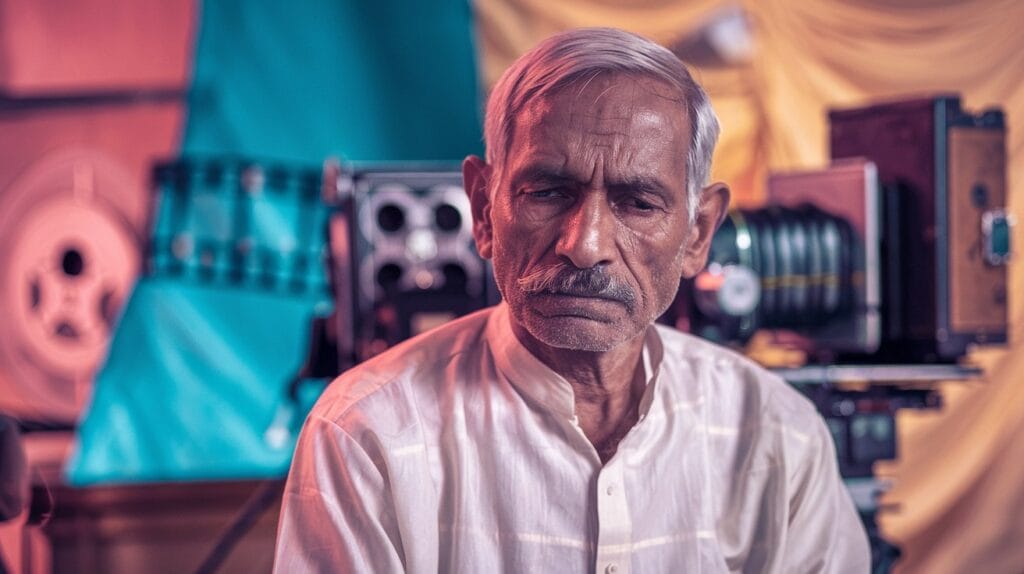If you’re searching for the best Mental Rehab Centre in Sonarpur, We Can Rehab stands as the ideal choice for those seeking healing. Over the years, we’ve dedicated ourselves to aiding numerous individuals afflicted by mental breakdowns. The relentless competition and detrimental work environments have driven many to profound despair. Our goal is to halt this cycle by offering a sanctuary for recovery and a return to a fulfilling life. Continue reading to discover why We Can Rehab is the most trusted Mental Rehab Center in Sonarpur.
Mental Health Treatment Centre in Sonarpur: Different Types of Mental Disorder
| Name of Disorder | Cause | Effect |
|---|---|---|
| Mood Disorders | Mood disorders can arise from a complex interaction of brain chemistry, life experiences, and genetics. Substance abuse, chronic stress, and traumatic events can all increase the likelihood of developing a mood disorder. | Mood disorders can lead to various emotional and physical problems, including feelings of depression or hopelessness, altered eating or sleeping habits, difficulty concentrating, and a diminished interest in activities previously enjoyed. |
| Anxiety Disorders | Environmental influences, neurochemical dynamics, and genetic predispositions are all contributing factors to anxiety disorders. These disorders may develop due to traumatic experiences, ongoing stress, or certain health conditions. | Anxiety disorders can lead to numerous physical symptoms such as fatigue, dizziness, shortness of breath, and a rapid heartbeat. They can also contribute to substance abuse, work-related problems, and social difficulties. |
| Personality Disorders | Environmental and genetic factors are thought to contribute jointly to the emergence of personality disorders. Experiencing abuse and trauma during childhood may increase the risk of developing such disorders. | A person’s personality may contribute to various challenges in the workplace, educational settings, and interpersonal relationships. Those with personality disorders may struggle to form and maintain healthy relationships, secure and retain employment, or achieve academic success. |
| Psychotic Disorders | While the exact causes of psychotic disorders remain unclear, they are thought to result from a mix of environmental influences, brain chemistry alterations, and genetic factors. | Psychotic disorders are associated with a variety of symptoms, such as delusions, disorganized thinking, and hallucinations. These symptoms can make it challenging for individuals with psychotic disorders to carry out their daily activities. |
| Eating Disorders | Eating disorders may arise from a complex interplay of genetic, psychological, and social factors. | Eating disorders can lead to a variety of mental and physical health problems, including depression, anxiety, electrolyte imbalance, malnutrition, and dehydration. In severe cases, eating disorders can be fatal. |
| Obsessive-Compulsive Disorder (OCD) | While the exact causes of OCD remain unclear, it is believed to be influenced by a mix of environmental factors, brain chemistry, and genetic inheritance. | Concentration challenges, interpersonal disputes, and professional obstacles are among the problems caused by OCD. Compulsive behaviours can consume hours of a person’s day who has OCD. |
| Post-Traumatic Stress Disorder (PTSD) | Exposure to a traumatic event is the cause of PTSD. This experience can be psychological or physical and may involve directly witnessing or personally undergoing the distressing incident. | Post-traumatic stress disorder (PTSD) can manifest through various symptoms including nightmares, anxiety, flashbacks, and an avoidance of reminders of the traumatic event. Furthermore, PTSD may hinder one’s ability to trust others, maintain relationships, and manage daily activities. |
depression treatment centre in Sonarpur: How bad is the condition?
- According to statistics, one in five individuals show signs of a mental disorder. Worldwide, 970 million people fall prey to some form of mental illness. Half of all mental health conditions begin by age 14, and three-quarters by age 24. At some point in their lives, one in four people may have a mental disease. Mental illnesses contribute to approximately 8 million deaths each year, accounting for 14.3% of all global fatalities.
- Following the COVID-19 pandemic, there was a global surge in anxiety and depression. An estimated 193 million to 246 million people worldwide, approximately 28% of the population, exhibited symptoms of depression. Consequently, there was an approximate 25% increase in individuals suffering from anxiety disorders, rising from 298 million to 374 million.
- In India, around 60 to 70 million people have a range of common and severe mental health conditions. Additionally, with over 260,000 suicide cases each year, India has one of the highest suicide rates globally. The World Health Organization’s statistics indicate that India’s average suicide rate stands at 10.9 per 100,000 people.
mental rehabilitation centre in Sonarpur: What are the viable cures available?
- Psychotherapy: Psychotherapy, often known as talk therapy, involves delving into an individual’s thoughts, feelings, and behaviours with the guidance of a mental health professional. There are many forms of psychotherapy, and the appropriate method of treatment depends on the person’s specific circumstances.
- Medication: Medication can be an effective treatment for a range of mental health conditions, as it can regulate brain chemistry and reduce symptoms. However, it is important to be aware that these medications can also have various side effects.
- Transcranial Magnetic Stimulation (TMS): TMS is a more recent therapy that stimulates the brain with magnetic pulses. Depression and other illnesses get treatment from it.
- Mindfulness-Based Therapies: Mindfulness-based therapies, including meditation and yoga, assist individuals in concentrating on the present moment and embracing their thoughts and emotions without judgment.
- Electroconvulsive Therapy (ECT): ECT is a safe and effective treatment for severe depression and various mental health disorders, involving the passage of a small electric current through the brain.
- Lifestyle Modifications: Improving the lifestyle of a person experiencing distress can also benefit their mental health. This involves adopting a balanced diet, engaging in regular exercise, ensuring sufficient rest, and managing stress effectively.
- Support Groups: Joining a support group provides individuals with a secure and supportive environment to connect with others who are facing similar challenges.

mental health recovery centre in Sonarpur: How We Can Make a Difference!
We Can Rehab upholds the strong will of individuals and thus avoids any forced treatment or medication. As the premier Mental Rehab Centre in Sonarpur, we hold the conviction that true recovery must originate internally. While we acknowledge the benefits of medication, we advocate for organic healing of the mind through therapy. By employing therapy and support groups, we aid individuals in overcoming their struggles and reviving their lives. Additionally, we provide expert counselling to empower them with strategies to manage their distress. Below is a list of the benefits of Psychotherapy:
- Provides a safe space to talk: We foster a supportive and confidential space where individuals can freely share their thoughts, feelings, and experiences without fear of judgment. This is particularly beneficial for those grappling with challenging emotions or who are hesitant to discuss their mental health with friends or family.
- Helps develop coping mechanisms: Therapy can teach people healthy ways to cope with stress, anxiety, difficult emotions, and challenging situations. These coping mechanisms can help people manage their symptoms and improve their overall well-being.
- Increases self-awareness: Therapy can provide individuals with a deeper insight into their thoughts and behaviours. This increased self-awareness can be a powerful tool for enacting positive transformations in their lives.
- Addresses underlying issues: Occasionally, mental disorders stem from past experiences or unresolved trauma. Therapy can assist individuals in delving into these underlying issues and cultivating healthier cognitive and behavioural patterns.
- Improves communication skills: Therapy can assist individuals in learning to communicate more effectively with others, leading to improved relationships and decreased stress levels.
Conclusion
While it’s true that many mental health issues don’t have definitive cures, as the premier Mental Rehab Centre in Sonarpur, we understand that there are highly effective treatments available. These therapies help individuals manage their conditions and lead fulfilling, healthy lives. Mental health conditions have devastated numerous lives and families across our country. Often misunderstood, many are isolated within our society, and tragically, some resort to ending their lives. Our mission is to offer support to those affected and protect them from such dire outcomes. We Can Rehab stands as the best Mental Rehab Centre in Sonarpur, dedicated to assisting those in need with cutting-edge treatments, exceptional psychotherapy, and mindfulness training.
Furthermore, apart from being the best Mental Rehab Centre in Sonarpur, We Can Rehab also provide a variety of de-addiction treatments, Depression Rehab Center, Nesha Mukti facility and mental rehab. Additionally, we give drug addiction treatment, alcohol treatment, addiction treatment, rehabilitation centres, detox centre, Luxury Rehab, Rehab Center in Sonarpur, Drug treatment centre in Sonarpur and detoxification centre.
FAQs
- What is a mental disorder?
- A mental disorder is a health condition that impacts an individual’s thinking, mood, and behaviour. It can lead to considerable distress and disrupt the person’s capacity to manage daily activities effectively.
- How common are mental disorders?
- Mental disorders are more prevalent than one might expect. The World Health Organization reports that one in eight individuals globally is living with a mental disorder.
- What causes mental disorders?
- The origins of mental disorders are diverse and depend on the particular condition. They can arise from a complex interplay of factors such as genetics, brain chemistry, life experiences, and environmental influences.
- What are the symptoms of mental disorders?
- Feeling sad or hopeless
- Anxiety or worry
- Changes in appetite or sleep
- Difficulty concentrating
- Withdrawing from social activities
- Hallucinations or delusions
- Thoughts of suicide
- What are the types of mental disorders?
- Mood Disorders: These conditions primarily affect a person’s mood, such as depression or bipolar disorder.
- Anxiety Disorders: These conditions are characterized by excessive worry and fear.
- Personality Disorders: These conditions are characterized by inflexible and maladaptive patterns of thinking, feeling, and behaving.
- Psychotic Disorders: These conditions are characterized by a loss of contact with reality, such as schizophrenia.
- Eating Disorders: These conditions are characterized by unhealthy eating habits and a distorted body image, such as anorexia nervosa or bulimia nervosa.
- Obsessive-Compulsive Disorder (OCD): This condition is characterized by intrusive thoughts and repetitive behaviours.
- Post-Traumatic Stress Disorder (PTSD): This condition can develop after a person experiences or witnesses a traumatic event.
- How do mental disorders get treatment?
- Psychotherapy (talk therapy)
- Medication
- Lifestyle changes
- Support groups





